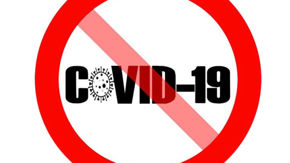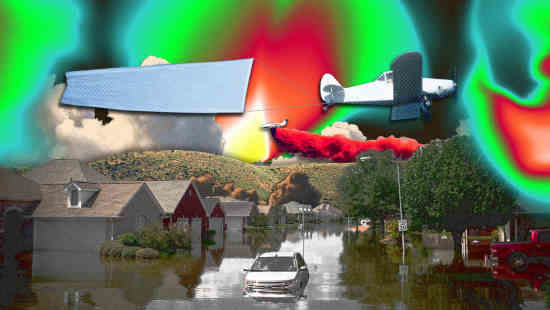7 mins read//
On New Year’s Day 1986, Texans had a lot to think about. It was the start of the state’s 150th birthday, they still didn’t know who killed Bobby, and Texas A&M was playing Auburn and its star Heisman Trophy-winning running back Bo Jackson in the Cotton Bowl. During the game, viewers saw a new public service announcement from the state’s Department of Transportation, starring blues rock front man Stevie Ray Vaughn. As Vaughn sits in front of a giant, rippling Texas flag, plucking a bluesy riff of “The Eyes of Texas” on his guitar, a voiceover explains that every year the state spent more than $20 million picking up trash along its highways. It’s about as dry as you’d expect any PSA about littering to be. Then, at the end, Vaughn says it: “Don’t mess with Texas.”
This is a state with a fierce sense of identity. “Remember the Alamo” and all that. Since that New Year’s Day 35 years ago, the phrase “Don’t Mess With Texas” has been plastered across t-shirts, bumper stickers, flags, coffee mugs, and more, and probably qualifies as one of the most popular and enduring advertising taglines in American history. Not only that, but it worked. Leading up to the campaign, highway littering was increasing by about 17% every year. By 1987, littering was down by 29%. It dropped by 54% the next year, and by 1990, littering levels were down by 72% compared to four years earlier.
When it comes to the climate crisis, Americans have been regularly served up PSAs for about two decades. From Al Gore’s call to action in his 2006 documentary An Inconvenient Truth, to celebrities like Julia Roberts and Harrison Ford voicing nature’s concerns, to Greta Thunberg’s Fridays for Future, the warnings about rising temperatures, sea levels, melting ice caps, and the impending societal fall-out of it all. And yet it still hasn’t been enough to convince people to act like this is a crisis, whether in their daily lives or in who they vote for to implement legislation and regulation that will help solve it. A May 2021 Pew Research survey found that while 71% of millennials said climate should be a top priority, just 23% reported taking any personal action to help address climate change.
That disconnect illustrates a distinct failure to communicate the severity of the climate crisis in a way that sparks the required public response. Now, however, politics, marketing strategy, and yes, the weather, are forming a perfect storm that may finally help push more of us into real action.
The thing about climate change is, it’s a really, really big deal. Too big, in fact, for most people to be able to put it in the context of their own lives. In 1987, the U.S. and about 24 other countries signed the Montreal Protocol to phase out of damaging chlorofluorocarbons (CFCs) found in many personal hygiene products like hairspray and deodorant sprays, because their continued use was contributing to a damaging hole in the ozone layer. In that case, the challenge was something tangible, understandable. People inherently got that it was a hole, and it was bad. And it worked! By sparking both behavioral and legislative change, NASA reported in 2017 that the size of the hole was at its smallest since 1988.
MAKING IT IMMEDIATE
Best-selling author Adam Alter has written two books—Drunk Tank Pink (2014) and Irresistible (2017)—on human behavior and what gets our attention, and says that action on climate change is difficult to sell primarily because it happens so slowly. It’s not moving on a daily, weekly or monthly scale, but rather something that occurs across years and decades. “Even more troubling is the fact that you can’t see the effects of your actions,” says Alter. “If you doubled your carbon footprint this year, your personal experience of the world wouldn’t change. If you halved it, your personal experience wouldn’t change either. So we’re asking people to care about an issue that feels remote relative to more immediate issues, and we’re asking them to make fairly demanding changes to their lives that don’t produce obvious, measurable results.”
From a marketing and communications perspective, for the last decade or more, it’s been all about awareness. Even the most recent Fridays for Future PSA released on September 24th focuses on climate denial. Marcus Collins, a University of Michigan marketing professor and head of strategy at Wieden+Kennedy New York, says awareness alone isn’t enough to encourage action. “When you say climate change is real and happening, what do I do about that today?” says Collins. “The message hasn’t been as immediate, and the behaviors not as tangible.”
Which brings us back to not messing with Texas. The anti-littering campaign worked so well because of how tightly it tied the desired action—not littering—to identity. “That language became a rallying cry for Texans,” says Collins. “Culture is anchored in identity, and it is the governing operating system of man. It says that because I subscribe to a particular tribe, particular group of people, or a particular identity mark, there are beliefs and ideologies that I adopt or take on.”
According to a 2020 report from the Yale Program on Climate Change Communication, only about a third of Americans feel “alarmed” about climate change. So the challenge is to find a way to stimulate action on climate through culture and identity. Problem is, no one looks in the mirror and says, “I’m a human.” It’s got to be something more. Collins says that just as “Don’t Mess With Texas” tapped into state pride to spark action, climate crisis communications should use a similar approach.
TAPPING INTO THE POWER OF MOMS
The Potential Energy Coalition, a non-profit that uses marketing and communications to expand the number of people demanding action on climate, conducted research on who the most effective groups and identities would be. CEO John Marshalls says that we quickly need to get the number of Americans feeling alarmed about climate above 50%, so his organization wanted to find the audiences who mattered first to make that happen. “Everyone will matter eventually, but who matters most first?” says Marshall. “And it’s really undeniable that the moderate mom is someone who really steps up when there is an important issue to be faced.”
Earlier this year, the Potential Energy Coalition launched a new campaign called Science Moms, featuring a group of female climate scientists. With the help of Colorado State University atmospheric scientists Dr. Melissa Burt and Dr. Emily Fischer, and University of Arizona oceanographer Dr. Joellen Russell, the PSA campaign began running in a few select markets at the start of 2021. The results were so encouraging that it’s now launching nationally with The Ad Council. “I’m a scientist and I talk to scientists all day everyday, but it’s really about aiming our communication over a shared value of our children,” says Dr. Burt. “How can we inspire moms, educate moms, and empower them to really be a part of the change?”
It’s not the first time moms were tapped to take on a national crisis, as Mothers Against Drunk Driving PSAs and advocacy has helped decrease impaired driving in the U.S. by 50% since the group was founded in 1980.
RELEVANCE AND A SENSE OF URGENCY
While targeting specific groups and how the climate crisis is affecting them, Marshall also says it’s important to change how we’re talking about it. Potential Energy Coalition has served about 800 million ads and about 200 ad tests with randomized control trials, trying to find how to get people to care about the issue, and its led them to a few conclusions. One is merely the framing and language really needs to change. “Nobody wakes up in the morning and says, ‘This is a great day for decarbonization!’,” says Marshall.
Then it’s about relevance and a sense of urgency. “We’ve tested a whole bunch of different angles, and it’s really human stories about you, your community, and the people you love and care about being impacted that anchors us in relevance,” says Marshall. “And we found that messaging through your children is one of the leading effective ways, if not the most effective.”
Unfortunately, another major contributing factor here is the simple fact that the earth is conducting its very own high-profile awareness campaign. The National Oceanic and Atmospheric Administration reported that this past July was the world’s hottest month in 142 years of records. The western U.S. and Canada hit some their hottest temperatures ever this year, while areas of China and Germany were soaked in unprecedented flooding. The message is unmistakable. “Sometimes people have to experience it to really connect the dots,” says Dr. Burt. “Then it’s close to home. It’s connected to you, your neighborhood, and your community. Once people get that piece, I think they’re more likely to do something about it.”
As important as it is to target specific groups and identities with effectively urgent language, there’s also been a much darker barrier to convincing people to change their behavior and habits to fight climate change. On September 16th, Congress launched an investigation, and will hold hearings, into the reported role of the fossil fuel industry in a long-running, industry-wide campaign to spread disinformation about the role of fossil fuels in causing climate change.
If that rings a bell, remember the famous 1971 “Crying Indian” anti-pollution PSA from an organization called Keep America Beautiful. What on the surface appeared to be an environmentally-conscious campaign, was really an effort by beverage and packaging corporations to pass on the responsibility for waste created by their products to the individual consumer.
In the letter to top executives at ExxonMobil, BP America Inc., Chevron, Shell Oil, American Petroleum Institute, and the U.S. Chamber of Commerce, Democratic representatives Carolyn B. Maloney, chairwoman of the Oversight and Reform Committee, and Ro Khanna, chairman of the Subcommittee on the Environment accused that these companies and allies in the fossil fuel industry have worked to prevent serious action on global warming by generating doubt about the documented dangers of fossil fuels. Big Oil has been credited with seeding the emphasis on personal responsibility on climate action over corporate and regulatory overhaul.
Duncan Meisel, campaign director for nonprofit media lab Fossil Free Media, which began its “clean creatives” campaign last year to encourage PR and ad agencies to dump fossil fuel clients, says this could be the fossil fuel industry’s Big Tobacco moment, and provide ammunition for more intense engagement. “One of the most important messages, or most motivating messages, for people who do take action on climate change, is how much we’ve been lied to,” says Meisel. “And I think this investigation will show the self-interest and the greed of the people behind the climate crisis and that will spark more people into action.”
Cutting down the sheer amount of disinformation will certainly help, but in order to get the kind of broad, large-scale and immediate action we need, it’s going to take a lot more than a “Don’t Mess with Moms” bumper sticker.
Source: https://www.fastcompany.com/90679948/how-can-we-get-more-people-to-care-about-the-climate-crisis











